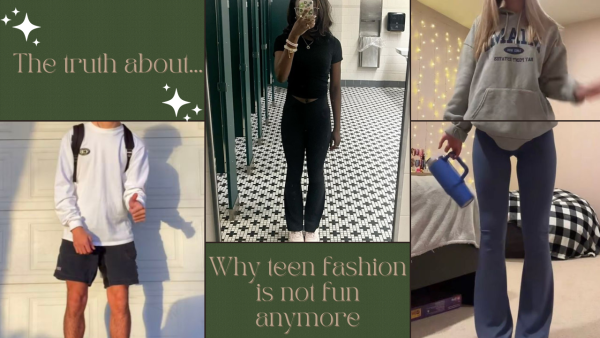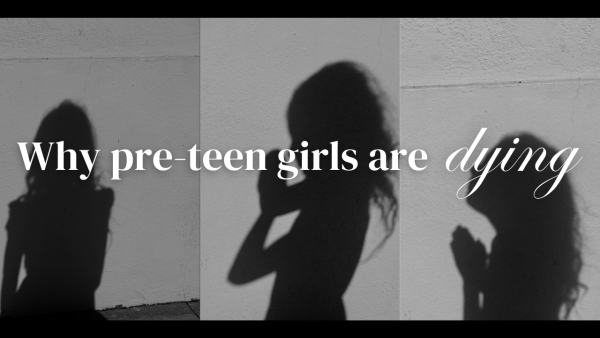EDITORIAL: Rhetoric and bluster filling our screens
Jakob Strohl is a junior at NPHS. This editorial is his response to the articles he has read in the Opinion section of The Knight Crier. Strohl sees more rhetoric than editorial, and this is his response as a reader of the KC.
This is a troubled time in American history, I think we can all agree on that. It also is a troubled time in scholastic newspaper journalism, as people feel they need to restate an opinion argument three separate times using the same buzzwords to get the same point across. Well, if we are all to believe those that posture the most frequently, Justice Kavanaugh is a disgraced, unqualified loser and has “been put in a position he doesn’t belong in.” Point taken… or not, seeing as there are no facts to substantiate any of the claims made in any one of the three opportunities that were presented for liberal arguments to be heard. Those articles in The Knight Crier, that were supposed to be respectful, turned into salacious opposition articles at the slightest whiff of a different voice actually being heard.
The respectful commentary of the second article, “Opposing Views: Standing with Ford and Kavanaugh” was totally lost on the third that came out a few days later. It’s almost like, once presented with the voicing of a conservative argument, there needed to be something to stifle it. Because, as you know, arguments made by a conservative are dangerous and should never stand alone. As a student at this school, I welcome counter-opinions, but there is no reason why I should be exposed to such bias and downright malicious arguments being pitched my way in an effort to discredit and destroy my faith in my own views. That libel, no matter how much someone thinks it is deserved, is never an acceptable form of discussion. So it shocks me that writers today, for this paper, are content perpetrating this defamation with no recourse whatsoever.
Why is it that anyone who believes in presumption of innocence is considered now to be, as stated in the October 12th article, “harassing and shaming the victims of sexual assault?” And moreover, why should anyone think that it is “simply because it makes the person being accused look bad?” I agree with the next statement. Words do have weight, and “actions should have consequences.” Is that why Ford has stopped pursuing the Democratic brand of supposed ‘justice’ only after Kavanaugh’s confirmation? Is that why she perjured herself multiple times while following the ‘victim’ mentality, claiming she was afraid of flying and had claustrophobia, both blatant lies, only serving to enhance her “heartfelt testimony” and add desperate ploys for sympathy? Tell me, does that statement apply to the fact that she lied about ever being in the presence of a polygraph when she admittedly helped her friend prepare for a polygraph?
This section of this paper should be called the rhetoric section and not the opinion section because well-reasoned opinions should be based on facts while the ones presented are not. For example, singular sexually motivated crime statistics, as cited in the September 28th article, like “females ages 16-19 are four times more likely than the general population to be victims of rape, attempted rape, or sexual assault” mean very little when looking at general crime statistics overall. Any of those claims can be refuted or countered with the knowledge of singular violent crime statistics. Men are 78.8% more likely to be the victims of murder. That’s all types of murder, including sexually motivated murder. This shows that while women may, as many claim, be afraid to walk to the car for fear of being sexually assaulted, men have every right to claim to be even more afraid that they will be shot or stabbed. Men (depending on age) are anywhere from 3 to 10 times more likely to commit suicide than women of the same age: A serious problem caused by this concept of ‘toxic masculinity.’ If that is true, why do we weaponize statistics against men for sexual crime coupled with suicidality, yet never cherry pick the fact schizophrenics and people afflicted with clinical depression or bipolar disease have a very high tendency to commit criminal acts as well. Men are also tried harsher for domestic and sexually motivated violence as evidenced in a study conducted by psychologists Laurie Ragatz of West Virginia University and Brenda Russell of Penn State Berks. So in the court of public opinion, men are subject to more animus once accused of domestic or sexual violence than women. While women can say, once again, that they are more likely to be afraid to report a sexual crime, once accused, men might be more afraid to refute the claims if they are falsely leveled against him
Everyone can dispute single statistics or cherry pick others to use as a response. These ‘opinions’ are based on nothing substantive pertaining to their premises, and no one is permitted to offer any semblance of a rebuttal without there being a caveat, ‘this isn’t the only view and it certainly isn’t the right one.’ Staff writers are so content living behind a screen and attacking outright anything that seems to be a different argument. And if this sounds like one, it isn’t. Counter arguments are based on facts as well, and I feel the only way to explain my position is by using our “Opinion” writers’ style of speak; pure, unbridled passion and emotion, vitriol, and anger (leave the facts at the door). It’s time we give the students here at the high school a chance to not just follow the rhetoric and bluster like mindless sheep, but consider the facts like an informed voter.













Anonymous • Oct 17, 2018 at 4:36 pm
Jakob – I’m not saying that I agree or disagree with your main point, but there are some fallacies in your argument, and I hope you take the time to read this. You say that men are 78.8% more likely to be victims of murder and therefore should be more afraid to walk to their cars than women. However, in 2012, almost 90,000 rapes occurred in the US while only around 15,000 murders occurred. Additionally, about 3 out of every 1,000 people experienced rape, while only 0.05 out of 1,000 people were murdered. Therefore, it is much more likely to be raped, which explains the heightened fear of it. These statistics do not take into account the unreported rapes, of which there could be any amount. So it’s understandable as to why women are more fearful of being raped.
Brian Haley • Oct 17, 2018 at 1:32 pm
Jakob – Thank you for your time and for having the courage to bring this opinion forward. Unfortunately, this lesson on fact vs opinion has become lost in today’s world and in the modern media.